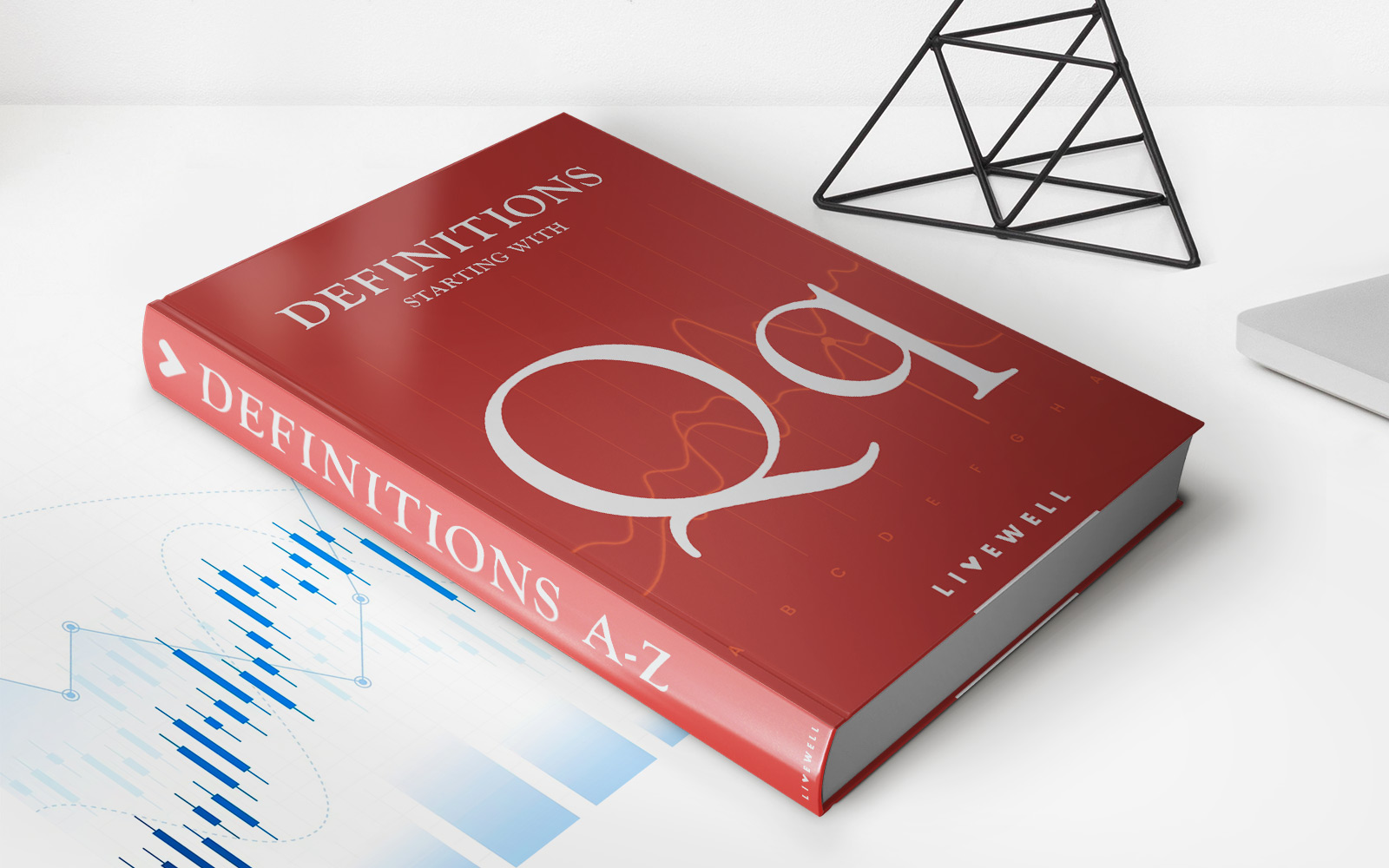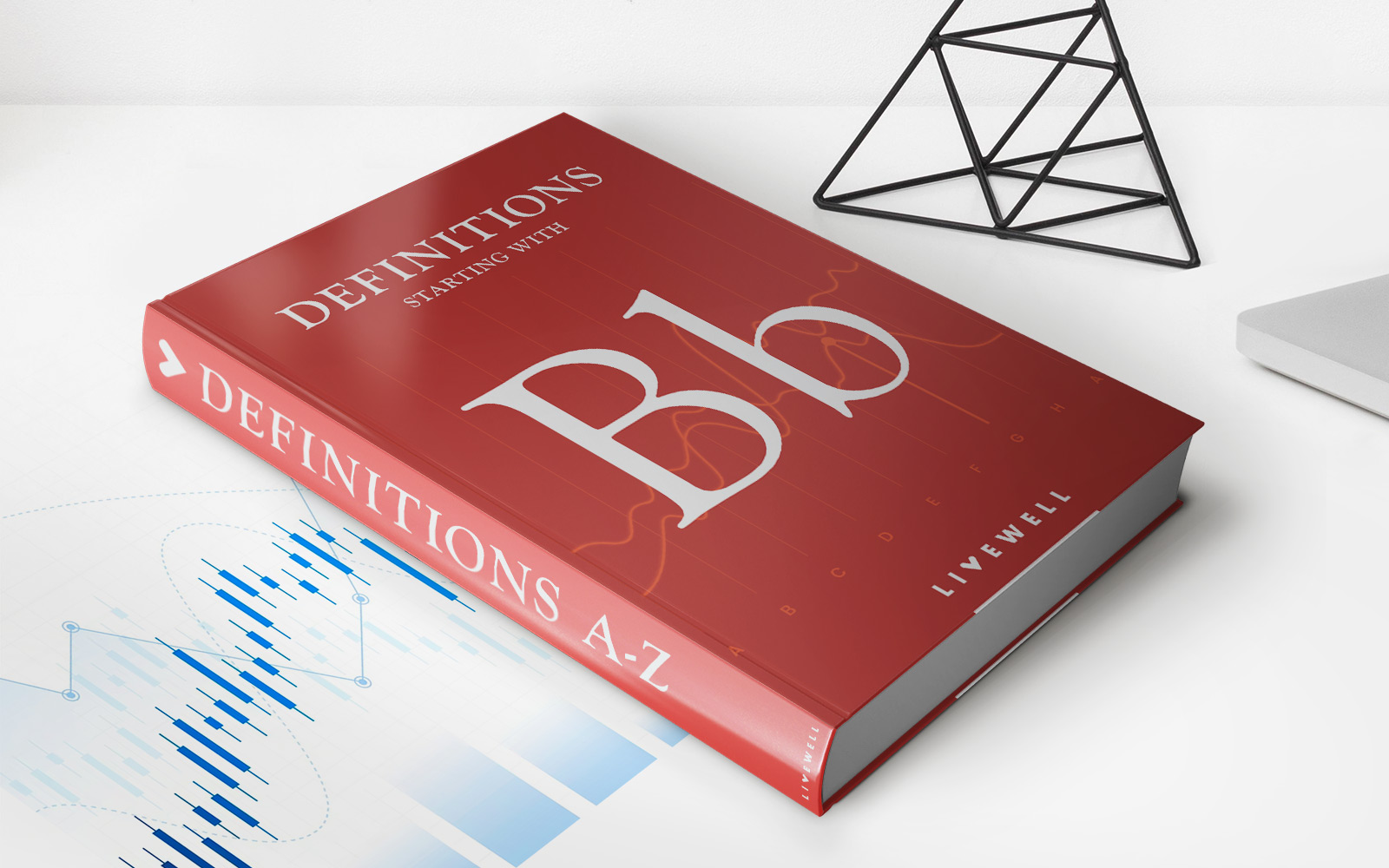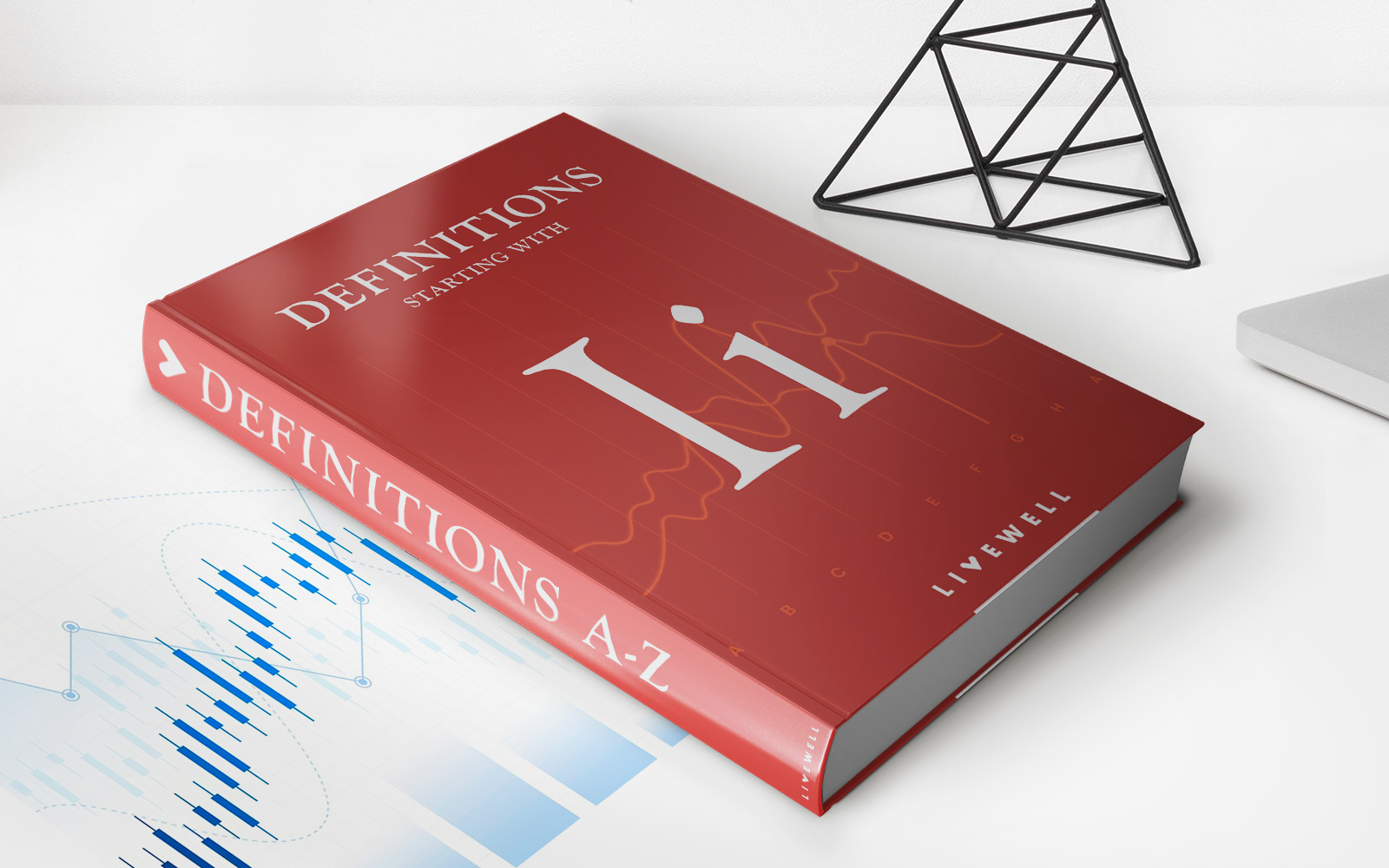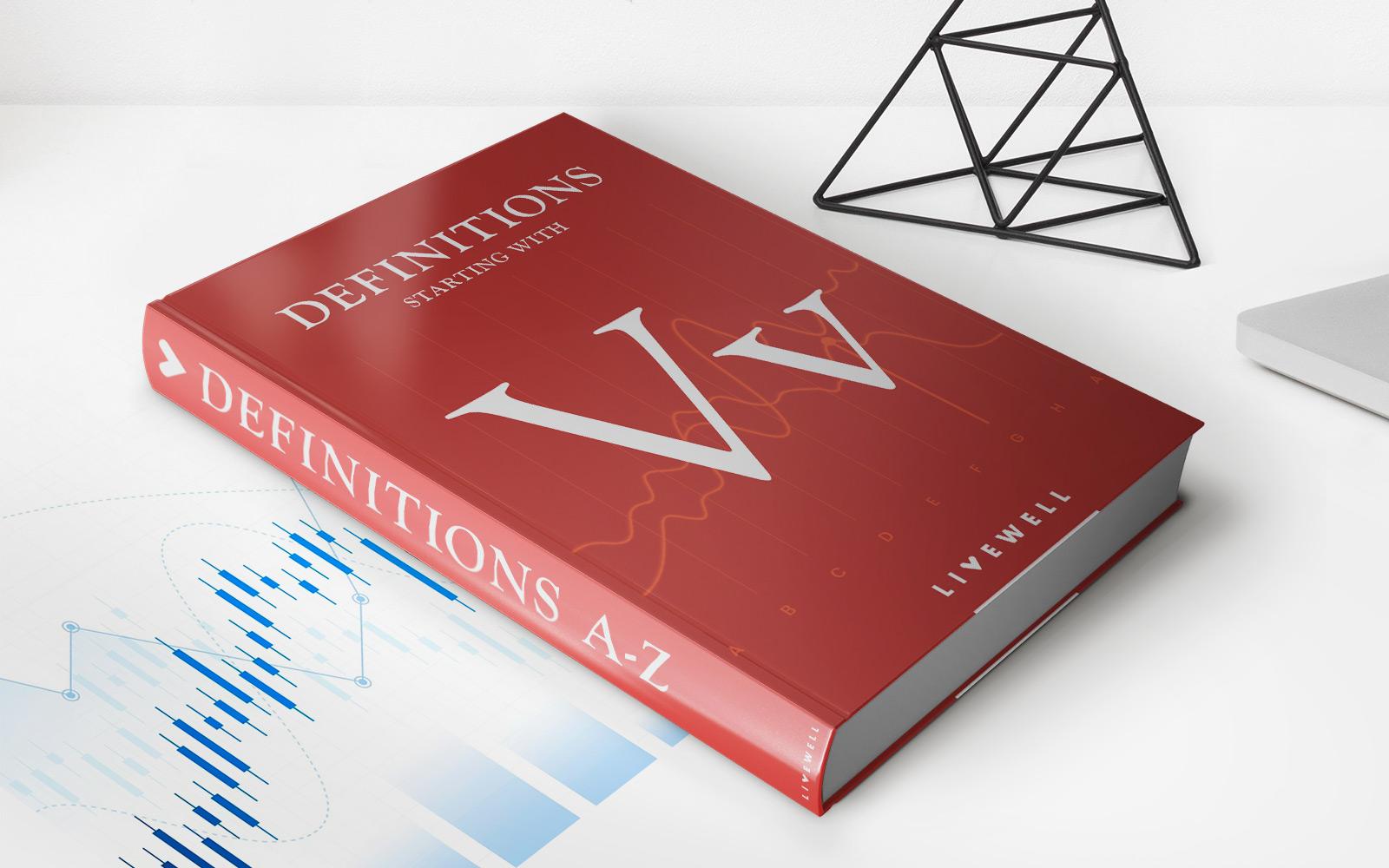Home>Finance>What Are Some Benefits Of Using Computers For Accounting Purposes?
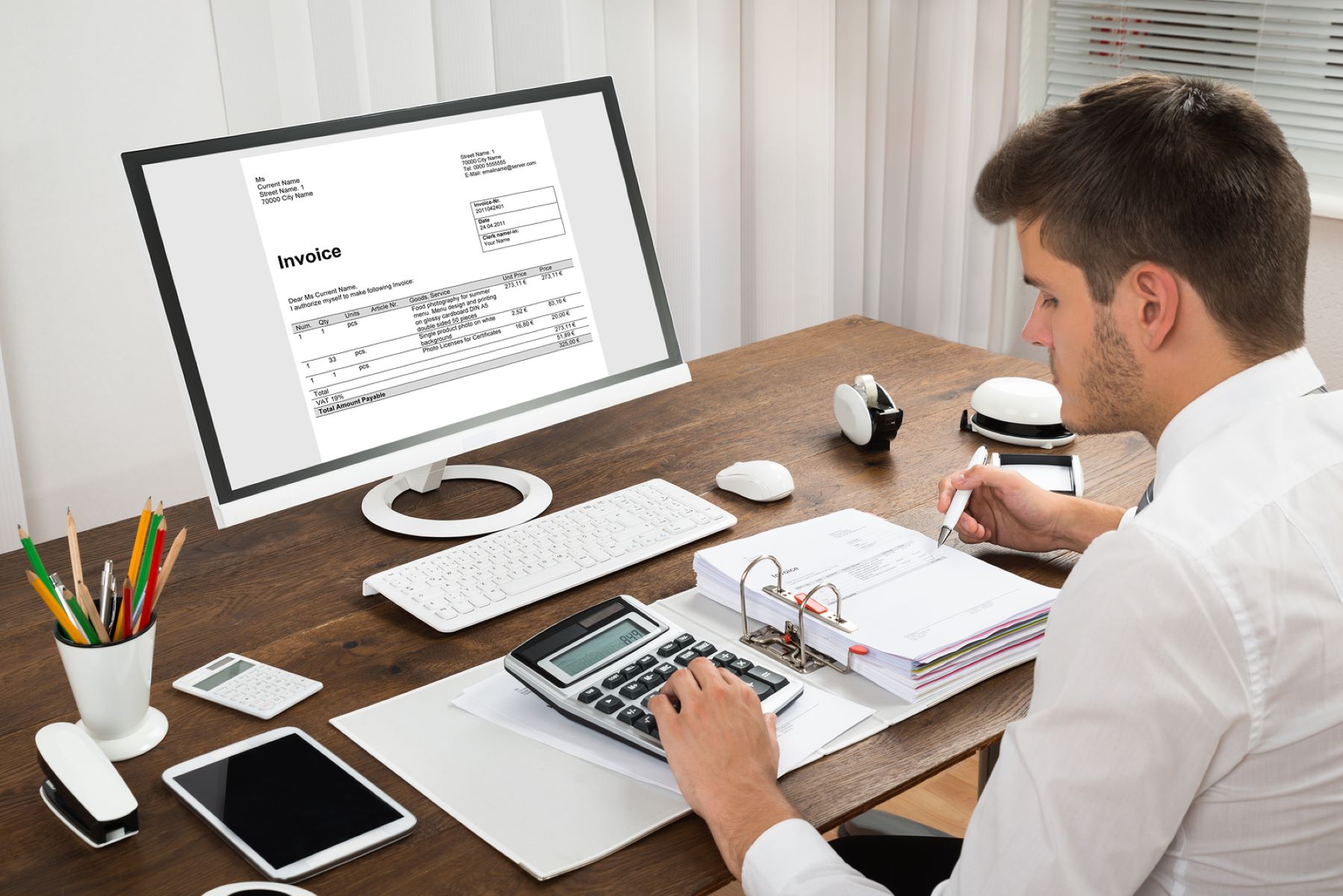

Finance
What Are Some Benefits Of Using Computers For Accounting Purposes?
Published: October 8, 2023
Discover the numerous benefits of using computers for accounting purposes in finance. Streamline your financial processes and improve accuracy with advanced technological solutions.
(Many of the links in this article redirect to a specific reviewed product. Your purchase of these products through affiliate links helps to generate commission for LiveWell, at no extra cost. Learn more)
Table of Contents
Introduction
Computers have revolutionized various industries, and the field of accounting is no exception. The advent of computer technology has significantly transformed the way businesses handle their financial transactions and manage their accounting processes. With the integration of computers into accounting practices, businesses can streamline their financial operations, improve accuracy, and save time and costs.
In this article, we will explore the benefits of using computers for accounting purposes. From increased efficiency to enhanced security measures, computerization has brought a multitude of advantages to the world of finance. Let us delve into the details and discover how technology has significantly impacted the field of accounting.
Over the years, manual accounting procedures were commonly used, involving arduous tasks such as bookkeeping, data entry, and financial analysis. These processes were time-consuming and prone to errors. However, with the introduction of computers, these labor-intensive tasks have been automated, allowing accountants and financial professionals to focus on more strategic and analytical aspects.
Computerized accounting systems provide businesses with the ability to handle financial transactions swiftly and accurately. Gone are the days of relying on handwritten ledgers and paper-based recording. With software applications and computer programs specially designed for accounting purposes, businesses can efficiently manage their financial records, track income and expenses, and generate detailed financial reports.
The adoption of computers in accounting has not only improved the efficiency of financial operations but has also led to increased accuracy and a reduction in errors. Manual data entry is prone to human errors, such as transposing numbers, miscalculations, and missed entries. With computerized systems, data entry can be automated, reducing the risk of inaccuracies and ensuring precise financial records.
Moreover, computerized accounting systems have built-in checks and controls, allowing accountants to verify the accuracy of data input and perform reconciliations more efficiently. This not only saves time but also minimizes the potential for errors to go unnoticed, ensuring that financial statements are reliable and in compliance with accounting standards.
Increased Efficiency
One of the primary benefits of using computers for accounting purposes is the significant increase in efficiency. Manual accounting processes are often time-consuming and labor-intensive, requiring extensive paperwork and manual data entry. However, with computerized accounting systems, repetitive tasks can be automated, freeing up valuable time for accountants and finance professionals to focus on more strategic and analytical tasks.
Computerized accounting software provides businesses with features such as automated data entry, where financial transactions are recorded electronically and transferred directly into the system. This eliminates the need for manual data input, reducing the risk of errors and saving considerable time and effort. Accountants can simply review and validate the imported data, ensuring accuracy and reliability.
In addition to automated data entry, computerized accounting systems offer features such as auto-reconciliation, where bank statements can be automatically matched with recorded transactions. This not only speeds up the reconciliation process but also minimizes the likelihood of errors and discrepancies going unnoticed.
Furthermore, computerized accounting systems provide real-time updates and instant access to financial data. This rapid access to information allows businesses to make quicker and more informed decisions, as they have access to up-to-date financial reports and analysis. Accountants no longer have to spend hours manually compiling data and generating reports; the system can generate accurate and detailed financial statements with just a few clicks.
The automation of financial processes also improves the efficiency of tasks such as invoicing, billing, and payment processing. With computerized accounting systems, businesses can easily generate professional-looking invoices, track payments, and send reminders for overdue payments. This streamlines the entire invoicing and payment process, enhancing cash flow management and reducing delays or errors in financial transactions.
Another aspect of increased efficiency in computerized accounting systems is the ability to integrate with other software and systems. Businesses can integrate their accounting software with other platforms such as customer relationship management (CRM) systems, inventory management systems, and e-commerce platforms. This integration ensures seamless data flow between different departments and systems, eliminating the need for manual data transfer and reducing the risk of data errors.
Overall, the increased efficiency offered by computerized accounting systems allows businesses to save valuable time, minimize errors, and allocate resources more effectively. Accountants can focus on value-added tasks such as financial analysis, strategic planning, and providing insights to support business growth.
Accuracy and Reduction of Errors
When it comes to accounting, accuracy is of utmost importance. Even the smallest error in financial records can have significant consequences for businesses. This is where computers play a crucial role in ensuring accuracy and reducing errors in accounting processes.
Computerized accounting systems eliminate the need for manual calculations and data entry, reducing the risk of human errors. Manual data entry is susceptible to mistakes such as transposed numbers, miscalculations, and missed entries. With computerized systems, data can be entered electronically and automatically verified for accuracy, greatly reducing the likelihood of errors.
Moreover, computerized accounting systems often have built-in checks and controls that help accountants maintain accurate financial records. These systems have validation checks that can flag potential errors or inconsistencies, such as incorrect entries, out-of-balance transactions, or duplicate entries. Accountants can easily identify and rectify these errors before they affect the accuracy of financial statements.
Furthermore, computerized accounting systems offer features such as reconciliation tools, which automate the process of matching transactions with bank statements. This helps identify any discrepancies or errors in recording, allowing accountants to take corrective actions promptly. Reconciliation processes that used to take hours or even days can now be completed in a fraction of the time, with a higher level of accuracy.
Another advantage of computerized accounting systems is the ability to generate accurate and reliable financial reports. Accountants can generate detailed financial statements with a click of a button, eliminating the need for manual data compilation and calculations. These reports provide a comprehensive view of the financial health of the business, allowing stakeholders to make informed decisions based on accurate and up-to-date information.
Moreover, with computerized systems, accountants can easily track and analyze financial data, identifying any discrepancies or unusual transactions efficiently. This helps in detecting potential errors or fraudulent activities, ensuring the integrity of financial records.
Overall, the use of computers in accounting greatly enhances accuracy and reduces the chances of errors. By automating calculations, data entry, and reconciliation processes, computerized accounting systems provide accountants with reliable and precise financial information. This not only instills confidence in the financial reports but also minimizes the risk of financial mismanagement and ensures compliance with accounting standards and regulations.
Time and Cost Savings
The adoption of computerized accounting systems offers significant time and cost savings for businesses. Manual accounting processes are often time-consuming and resource-intensive, requiring extensive paperwork, manual calculations, and data entry. However, with the integration of computers into accounting practices, businesses can streamline their financial operations, leading to substantial time and cost savings.
One of the key time-saving benefits of computerized accounting systems is the automation of repetitive tasks. Tasks such as data entry, calculations, and generating financial reports can be automated, freeing up valuable time for accountants and finance professionals. Instead of spending hours on manual data entry, accountants can focus on more strategic and analytical tasks, such as financial analysis and planning.
Moreover, the automation of accounting processes significantly reduces the risk of errors and the need for rework. Manual data entry is prone to human errors, such as transposing numbers or miscalculations. These errors can lead to potential financial discrepancies and require time-consuming efforts to identify and rectify. With computerized accounting systems, the likelihood of errors is minimized, saving time and effort in uncovering and resolving inaccuracies.
In addition, computerized accounting systems provide real-time access to financial data. This allows businesses to make quicker and more informed decisions, as they have access to up-to-date financial reports and analysis. Accountants no longer need to spend time manually compiling data and generating reports; the system can generate accurate and detailed financial statements with just a few clicks. This saves time and enables businesses to respond promptly to changing market conditions or financial challenges.
Furthermore, computerized accounting systems reduce the need for paper-based records and physical storage space. Gone are the days of storing countless boxes of financial documents and invoices. With digital storage and cloud-based solutions, businesses can store and access their financial data electronically, eliminating the need for physical storage space and the costs associated with it.
The adoption of computerized accounting systems also brings cost savings in terms of personnel. With automation and streamlined processes, businesses may require fewer accounting staff, reducing labor costs. Instead of investing in a large team of accountants to handle manual tasks, businesses can allocate their resources to hiring skilled professionals to provide valuable financial insights and strategic planning.
Additionally, computerized accounting systems often offer cost-effective subscription models, compared to the expenses associated with traditional accounting methods. These systems save businesses from purchasing expensive accounting software or maintaining physical records, resulting in long-term cost savings.
Overall, the time and cost savings offered by computerized accounting systems are significant. Automation, real-time data access, and reduced paperwork not only increase efficiency but also contribute to cost reduction. By embracing technology in accounting practices, businesses can optimize their financial processes and allocate resources more effectively.
Increased Data Storage and Accessibility
In the digital age, the amount of data generated by businesses has significantly increased. It is crucial for businesses to have efficient data storage and accessibility to manage and utilize this information effectively. Computerized accounting systems offer increased data storage capacity and easy accessibility, bringing numerous benefits to businesses.
Traditionally, businesses relied on physical storage mediums such as filing cabinets and shelves to store financial records and documents. However, these methods posed several challenges, including limited storage space, risk of damage or loss, and difficulties in retrieving specific information quickly. With computerized accounting systems, businesses can store vast amounts of financial data electronically, eliminating the need for physical storage and addressing these challenges.
Computerized accounting systems provide ample storage capacity, allowing businesses to store historic financial data, transaction details, and other relevant information securely. This ensures that businesses can maintain comprehensive financial records for as long as required, without the limitations of physical storage.
Moreover, computerized systems offer the advantage of easy data retrieval. Instead of searching through stacks of paper documents or manually scanning through records, accountants can simply search keywords or parameters within the system to locate specific information. This saves significant time and effort in retrieving financial data, whether it is for internal analysis, audits, or legal requirements.
Additionally, computerized accounting systems often provide powerful search and filtering capabilities, allowing for customized queries to extract specific data sets. Accountants can generate reports and analyze financial information based on various criteria such as time period, financial category, or specific transactions. This level of flexibility in data retrieval enhances decision-making processes and enables businesses to derive meaningful insights from their financial data.
Furthermore, cloud-based accounting solutions have further revolutionized data storage and accessibility. With cloud storage, businesses can securely store their accounting data on remote servers, ensuring data integrity and minimizing the risk of data loss or unauthorized access. Cloud-based accounting systems also offer the advantage of remote accessibility, enabling accountants and finance professionals to access financial data from anywhere, at any time, using any internet-connected device.
This accessibility is particularly valuable in today’s dynamic business environment, where remote work and flexible schedules are becoming increasingly common. Accountants can collaborate with team members, share and review financial data, and make informed decisions in a timely manner, regardless of their physical location.
The increased data storage and accessibility offered by computerized accounting systems not only enhance productivity but also provide businesses with the opportunity to leverage their financial data for strategic purposes. Businesses can analyze historical trends, identify patterns, and gain insights that can help drive growth and improve overall financial performance.
Overall, computerized accounting systems provide businesses with ample storage capacity, easy data retrieval, and remote accessibility. The digitization of financial records not only saves physical storage space but also simplifies information retrieval, enhances data analysis capabilities, and allows businesses to make data-driven decisions for growth and success.
Streamlined Financial Reporting
Accurate and timely financial reporting is essential for businesses to assess their financial health, make informed decisions, and meet regulatory requirements. Computerized accounting systems play a crucial role in streamlining financial reporting processes, ensuring timely and accurate preparation of financial statements.
With computerized accounting systems, the generation of financial reports becomes a seamless and efficient process. Instead of manually compiling data from various sources, accountants can rely on the system to automatically gather relevant financial information and generate comprehensive reports. This not only saves time but also minimizes the risk of errors or discrepancies that can occur during manual report preparation.
Computerized accounting systems offer robust reporting functionalities, allowing businesses to customize and generate a variety of financial reports. From balance sheets and income statements to cash flow statements and budget variance reports, accountants can generate these reports with ease and accuracy. These reports provide valuable insights into the financial performance of the business, helping stakeholders make informed decisions and gain a better understanding of the company’s financial position.
Furthermore, computerized accounting systems often offer real-time reporting capabilities, allowing businesses to access up-to-date financial data and generate reports on-demand. This enables proactive decision-making based on the most recent and relevant financial information. Whether it’s assessing the performance of a specific project or analyzing the profitability of a particular product, real-time reporting empowers businesses to make timely adjustments and capitalize on opportunities.
Another advantage of computerized accounting systems is the ability to generate standardized financial reports. These systems typically follow accounting standards and regulations, ensuring that the financial statements comply with the required format and content. This standardization not only facilitates proper financial disclosure but also provides consistency for internal and external stakeholders when comparing financial performance over time or across different entities.
In addition to standardization, computerized accounting systems often offer the flexibility to generate custom reports tailored to specific business needs. Accountants can define their own reporting parameters, such as filtering data by department, project, or cost center. This level of customization allows businesses to obtain detailed insights into specific aspects of their financial operations and identify areas for improvement or cost-saving opportunities.
The automation and centralized nature of computerized accounting systems also simplify the consolidation of financial statements for businesses with multiple entities or subsidiaries. Instead of manually gathering and reconciling financial data from various sources, accountants can rely on the system to streamline the consolidation process. This saves time, reduces the potential for errors, and ensures that consolidated financial statements accurately reflect the overall financial position of the business.
Overall, computerized accounting systems streamline the financial reporting process, enabling businesses to generate accurate, standardized, and customizable financial reports. With automated data gathering, real-time reporting, and the ability to generate consolidated statements, these systems enhance the efficiency and reliability of financial reporting, providing valuable information for stakeholders and supporting informed decision-making.
Automation of Repetitive Tasks
Automation is a key advantage of computerized accounting systems, as it eliminates the need for manual and repetitive tasks that can be time-consuming and prone to errors. By automating these tasks, accountants and finance professionals can focus on more strategic and value-added activities, improving overall efficiency and productivity.
One of the main areas where computerized accounting systems excel in automation is data entry. Instead of manually inputting financial transactions and other data, these systems allow for seamless integration with various sources such as bank feeds, payment processors, and invoicing systems. This integration enables the automatic import of transaction data, minimizing the time and effort required for manual data entry.
Furthermore, computerized accounting systems often offer features such as optical character recognition (OCR), which can extract relevant information from scanned documents and invoices. This reduces the need for manual data entry even further, as the system can automatically capture data and populate the appropriate fields. Accountants can simply review and validate the extracted information, ensuring accuracy and efficiency.
In addition to data entry, computerized accounting systems automate calculations and financial processes. Manual calculations are prone to human errors, which can have serious repercussions for financial accuracy. With automation, the system handles complex calculations such as tax calculations, depreciation, and inventory valuation. This not only saves time but also ensures accurate results.
Moreover, computerized accounting systems offer automation in areas such as invoicing, billing, and payment processing. Generating and sending invoices manually can be tedious and time-consuming. However, with automation, businesses can set up recurring invoices, predefined templates, and automated reminders for overdue payments. This streamlines the invoicing process, improves cash flow management, and reduces the chances of missed or delayed payments.
Another repetitive task that can be automated is bank reconciliation. Rather than manually comparing bank statements with recorded transactions, computerized accounting systems can match transactions automatically based on predefined rules. This eliminates the need for manual identification and reconciliation of discrepancies, saving time and ensuring accurate financial records.
Furthermore, computerized accounting systems provide automation in the preparation of financial reports. Instead of manually compiling data and formatting reports, these systems can generate financial statements, profit and loss reports, and balance sheets with just a few clicks. Accountants can customize report templates, apply filters, and automate the generation of scheduled reports, simplifying and speeding up the reporting process. This enables businesses to have timely and accurate financial information for decision-making purposes.
Overall, the automation of repetitive tasks in computerized accounting systems saves businesses time, reduces the risk of errors, and allows accountants to focus on more strategic financial activities. By eliminating manual data entry, automating calculations and financial processes, and streamlining reporting and invoicing tasks, these systems contribute to increased efficiency and productivity in accounting operations.
Integration with Other Systems
Integration with other systems is a significant benefit of computerized accounting systems, as it allows for seamless data flow and collaboration between different departments and functions within a business. By integrating accounting software with other systems such as customer relationship management (CRM), inventory management, and e-commerce platforms, businesses can enhance operational efficiency, improve data accuracy, and gain a comprehensive view of their financial and operational activities.
One of the key integrations is between the accounting system and the CRM. With this integration, businesses can ensure that customer and sales data seamlessly flow between the two systems. Sales transactions, customer information, and billing details are automatically synchronized, eliminating the need for manual data entry and reducing the risk of errors or discrepancies. This integration provides a comprehensive view of customer activity, allowing businesses to better analyze customer behavior, track sales performance, and improve customer service and satisfaction.
In addition to CRM integration, computerized accounting systems can be integrated with inventory management systems. This integration allows for real-time updates of inventory levels, sales orders, and purchase orders. When a sale is made, the inventory system will automatically update the stock quantity, ensuring accurate inventory records. The integration also streamlines the procurement process, as purchase orders can be automatically generated based on inventory levels, reducing the chances of stockouts or overstocking.
E-commerce platforms can also integrate with accounting systems to streamline the sales process. Sales transactions made through the e-commerce platform can be automatically recorded in the accounting system, reducing the need for manual data entry and ensuring accurate financial records. This integration simplifies order management, invoicing, and payment reconciliation, allowing businesses to efficiently handle a high volume of online sales.
Furthermore, computerized accounting systems can be integrated with payroll management systems. This integration automates payroll processing, reducing the time spent on manual calculations, tax deductions, and paycheck generation. With the integration, employee data, salary information, and tax withholdings can be seamlessly transferred between the two systems, ensuring accurate and timely payroll processing.
Integration with banking systems is another valuable feature of computerized accounting systems. This integration enables businesses to directly import bank transactions into the accounting system, automating the reconciliation process and minimizing the risk of errors. By synchronizing with the bank, balance information is updated in real-time, providing businesses with an accurate view of their cash flow and financial position.
Overall, the integration of computerized accounting systems with other systems enhances efficiency, accuracy, and data integrity. By eliminating manual data entry, ensuring synchronized information, and providing real-time updates, integration streamlines processes, reduces the risk of errors, and provides businesses with a holistic view of their financial and operational activities. Businesses can make well-informed decisions, improve customer service, optimize inventory management, and streamline payroll processing, ultimately contributing to overall business growth and success.
Improved Collaboration and Communication
The use of computerized accounting systems has greatly improved collaboration and communication within businesses. With these systems, different departments and stakeholders can seamlessly share and access financial data, facilitating better teamwork and decision-making processes.
One of the key benefits of computerized accounting systems is the centralization of financial data. Instead of relying on manual records and paper-based documents scattered across departments, all financial information is stored in a centralized database. This enables real-time access to financial data by authorized personnel, ensuring that everyone is working with the same accurate and up-to-date information.
This centralized data storage enhances collaboration between the accounting department and other teams within the organization. Sales teams can easily view customers’ financial information, credit limits, and outstanding invoices, enabling more informed sales decisions. The management team can access financial reports, enabling them to make strategic decisions based on accurate and current financial data. With everyone on the same page, departments can collaborate effectively and align their efforts with the organization’s financial goals.
Moreover, computerized accounting systems often offer user-level permissions and restrictions, allowing businesses to control access to sensitive financial information. This ensures that only authorized individuals can view or modify financial data, maintaining data security and integrity. Restricted access also fosters accountability and reduces the risk of unauthorized modifications to financial information.
Furthermore, computerized accounting systems provide a platform for improved communication within the organization. These systems often include messaging features and comment sections where employees can communicate and collaborate on specific financial transactions or projects. This eliminates the need for lengthy email chains or physical meetings to discuss financial matters, streamlining communication and saving valuable time.
The integration of computerized accounting systems with other software and systems also contributes to improved collaboration. As mentioned earlier, integration with CRM or inventory management systems ensures seamless data flow between departments. Sales teams can access customer financial information, while the accounting department can view sales data to inform financial decision-making. This integration breaks down departmental silos and fosters collaboration and cooperation among teams.
Furthermore, computerized accounting systems enable collaborative workflows and approval processes. For instance, multiple users can work on the same financial report simultaneously, with the system automatically merging the changes. This improves efficiency and collaboration, particularly in situations where multiple individuals are involved in financial reporting or analysis.
The improved collaboration and communication facilitated by computerized accounting systems also extend to external stakeholders. Accountants can easily share financial reports with auditors, investors, or lenders, enhancing transparency and facilitating financial analysis or examination. This enhances the organization’s credibility and facilitates smoother communication with external parties.
In summary, computerized accounting systems have improved collaboration and communication within businesses by centralizing financial data, providing real-time access to information, enabling secure user permissions, and facilitating integration with other software. Effective collaboration and communication between departments and stakeholders result in better decision-making and financial performance for the organization as a whole.
Enhanced Security Measures
Ensuring the security of financial data is of paramount importance to businesses. Computerized accounting systems provide enhanced security measures that protect sensitive financial information from unauthorized access, data breaches, and other security threats.
One of the primary security features of computerized accounting systems is user authentication and access controls. These systems require users to login with unique usernames and passwords, ensuring that only authorized personnel can access the financial data. Administrators can assign different levels of access to employees, allowing them to view, modify, or delete specific financial information based on their roles and responsibilities. By implementing strong user authentication and access controls, computerized accounting systems prevent unauthorized individuals from gaining access to sensitive financial data.
In addition to user authentication, computerized accounting systems often offer data encryption capabilities. Encryption helps protect financial data by converting it into a coded form that can only be deciphered with the appropriate encryption key. This adds an extra layer of security, making it difficult for unauthorized individuals to access or interpret the financial information even if they manage to bypass initial authentication measures.
Another security measure provided by computerized accounting systems is regular data backups. These systems allow businesses to schedule automated backups of their financial data, ensuring that a copy of the information is securely stored in case of accidental deletion, system failure, or other unforeseen events. Regular backups safeguard against data loss and enable businesses to restore their financial data to a previous state if necessary.
Furthermore, computerized accounting systems often have built-in audit trails and activity logs. These logs record every activity and change made within the system, such as data modifications, user logins, and report generation. By keeping a detailed record of system activities, businesses can monitor and track any unauthorized or suspicious activities. Audit trails serve as a valuable tool in identifying potential security breaches or unauthorized data modifications, helping to maintain data integrity and providing a means of investigation if necessary.
Moreover, computerized accounting systems provide protection against physical damage or loss of financial data. By storing financial information electronically or in the cloud, businesses reduce the risk of data loss due to disasters such as fires, floods, or theft. Physical damage or loss of documents can have severe consequences, but computerized systems ensure the security and availability of financial data even in such situations.
Additionally, computerized accounting systems often include security features such as firewalls, intrusion detection and prevention systems, and antivirus software. These measures help protect the system from external threats such as malware, hacking attempts, or unauthorized access. Regular updates and patches to the software also ensure that security vulnerabilities are promptly addressed, mitigating the risk of potential breaches.
Overall, computerized accounting systems offer enhanced security measures to protect sensitive financial data. User authentication, access controls, data encryption, regular backups, audit trails, and other security features ensure the integrity, confidentiality, and availability of financial information. By implementing these security measures, businesses can have peace of mind knowing that their financial data is protected from unauthorized access and security threats.
